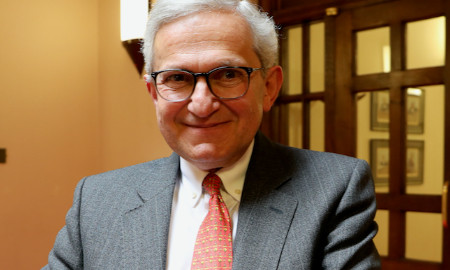Sign up for our free daily newsletter
YOUR PRIVACY - PLEASE READ CAREFULLY DATA PROTECTION STATEMENT
Below we explain how we will communicate with you. We set out how we use your data in our Privacy Policy.
Global City Media, and its associated brands will use the lawful basis of legitimate interests to use
the
contact details you have supplied to contact you regarding our publications, events, training,
reader
research, and other relevant information. We will always give you the option to opt out of our
marketing.
By clicking submit, you confirm that you understand and accept the Terms & Conditions and Privacy Policy
London International Disputes Week has announced its second keynote speaker for its core conference in June, following Lady Chief Justice, Baroness Carr, who will give the opening speech.
Meg Kinnear, the Canadian secretary-general of the International Centre for Settlement of Investment Disputes (ICSID), will deliver the closing keynote at the core conference. A trade lawyer with a long career in public service, she is poised to bring valuable insights into the evolving landscape of international arbitration, not least given her particular focus on investor-state dispute settlement (ISDS). The event will mark a highlight in the calendar of this year’s LIDW, which will take place 3-7 June.
Kinnear’s keynote is particularly anticipated because it will focus on the role of ICSID, the premier institution for resolving international investment disputes, in fostering an era of reform within arbitration, not least given the increasing scepticism from some about ISDS.
As Cherie Blair KC indicated in her 2020 Roebuck Lecture at the Chartered Institute of Arbitration, ICSID has enabled ISDS to protect investors against arbitrary government actions; without it, investors would be unprotected by international arbitration, which would affect FDI, supply chains and economies.
However, while the actions of some governments have been held to be predatory and abusive in appropriating investor assets, a common criticism of ICSID has been its embrace of narrow investor interests against the wider interests of people and politicians, notwithstanding the flexibility of arbitration in resolving those tensions and ICSID’s aims in balancing their interests.
The EU, for example, prefers an open investment court to resolve such disputes with appropriate transparency. At the same time, civil society groups have criticised the confidentiality of ICSID proceedings, the elitism of ICSID tribunals, the consistency of decision-making and the justification for the size of specific awards made against developing nations.
Kinnear’s leadership has been instrumental in steering ICSID through transformative changes, underscoring her significance within the arbitration community. Her upcoming address arguably symbolises a crucial moment for international dispute resolution.
She offered to share ICSID’s perspectives on the conference agenda, saying: “Innovation and inclusivity are the hallmarks of London International Disputes Week. LIDW24 promises to continue that tradition at a time when the rule of law and peaceful dispute resolution are essential in confronting our current global challenges.”
Before her keynote address, LIDW24 will kick off with its second International Arbitration Day on 3 June. Hosted by Clyde & Co, Covington & Burling and Kirkland & Ellis, the event will feature prominent industry figures including former UK justice minister Lord Wolfson KC of One Essex Court and will delve into arbitration trends across various jurisdictions. It builds on the success of last year’s thematic day devoted to arbitration, hosts of which included Mayer Brown, Herbert Smith Freehills and Allen & Overy.
The event will consider arbitration’s role in the transformation of Saudi Arabia under Vision 2030 following the inaugural Riyadh International Disputes Week, widely praised by lawyers who attended, and ASEAN’s arbitration landscape as Hong Kong hosts the ICCA Congress in May this year. It will also examine India’s review of the Arbitration and Conciliation Act, which arguably flags India’s own push for regional prominence.
Ahead of next week’s Paris Arbitration Week, its London counterpart will also undertake EU horizon scanning, as well as focusing on the Baltic States, the Balkans, Africa and MENA as discrete areas, showing that LIDW’s focus remains resolutely international.
Luiz Aboim, International Arbitration Day lead for LIDW, said: “I am delighted to launch the agenda for International Arbitration Day, which will feature keynotes from distinguished arbitral experts and panel discussions geared towards exchanging insights from jurisdictions across the globe.”
Email your news and story ideas to: [email protected]











